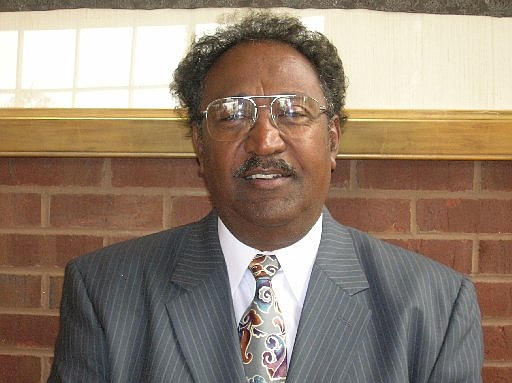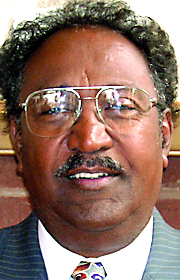UPCOMING EVENTS• Voter restoration for ex-felons is scheduled at 10 a.m. June 9 at Phillips Temple CME, 1321 N. Moore Road.• Voting rights for ex-felons will be discussed at the NAACP's criminal justice seminar at 9 a.m. June 16 at the Chattanooga Choo Choo.
If trends in voter apathy and population changes continue, there may be no black elected members of the City Council by the 2020 census, said NAACP Vice President Joe Rowe.
The number of blacks on the City Council has halved from 2000, he said -- there were four black council members in that year, and only two today.
State law requires that district lines be drawn to ensure black representation, he said, but that doesn't matter if blacks don't vote.
Look at the 2009 council election, he said. District 9 has the largest population of black voters in the city, about 70 percent. But whites, with about 28 percent of the district population, cast the most votes. As a result, blacks lost the District 9 City Council seat, he said.
In the March primary, the voting percentage at some majority-black districts was 10 percent or less, compared with 17 percent overall, according to Rowe.
The Chattanooga-Hamilton County NAACP and about two dozen black ministers are participating in a nonpartisan, national get-out-the-vote effort to make sure blacks vote and maintain electoral representation.
"All the progress we've made since the civil rights movement could be lost if we don't act, and the generations to come will suffer because of it," said the Rev. Roderick Ware, pastor of New Monumental Baptist Church.
People died so blacks could vote, but some still don't bother, Ware said.
The ministers and the NAACP also worked together to inform people about new laws that require photo identification for a person to vote. In January, Tennessee joined Georgia and other states with stricter voter ID requirements. In all, 15 states are expected to have photo ID laws by the November elections, according to the National Conference of State Legislatures.
More than 11 million blacks age 18 and older are not registered to vote. And 25 percent of the total black population in the U.S. does not have state or federal issued photo identification, Rowe said.
The NAACP and the ministers will use the Voter Activation Network to call and encourage voter participation and to make sure voters have the proper identification. The NAACP also will contact unregistered voters.
The Voter Activation Network includes voters' names, addresses and telephone numbers. Republican and Democratic party leaders have used the database for years. The NAACP just got access this year, Rowe said.
"We are just lethargic in this country, all over," said former NAACP President James Mapp. "We don't take civics classes anymore, so we have no real interest in government. It's a mess for the white and black communities."
The ministers and the NAACP will host a restoration of voting rights meeting for ex-felons in June.
One in eight blacks is prohibited from voting because his is an ex-felon, Rowe said.
Tennessee is among the strictest of all states concerning voting rights laws. Some states allow people to vote while they're in prison, but in Tennessee felons have to be pardoned by the governor or have fulfilled all of the time imposed by the judge, including probation. They also must be current on any court-ordered child support payments and restitution to victims, Rowe said.
SHIFTING LINES
The lack of voter participation and shifts in population have caused blacks to lose two of the four seats they once held on the City Council.
Blacks lost District 7 when Manny Rico defeated the late Debra Matthews in a run-off election in 2005. Rico won the election about three years after several blacks relocated when the 600-unit Spencer J. McCallie Homes, the largest public housing site in the city was demolished.
Blacks still hold District 5 and District 8. But District 8 probably will be lost in the next election, Rowe said.
Andraé McGary, who holds that council seat, is running for the state District 10 Senate seat. Incumbent Democratic Sen. Andy Berke will not run for re-election and instead will run for Chattanooga mayor.
In the meantime, the black population in the downtown area that includes M.L. King Boulevard located in District 8 has declined from 67.46 percent in 2003 to 56.80 percent in 2011, according to Randy Burns, the city's management analyst. The white population is expected to increase even more as downtown becomes more populated with riverfront condos and six-figure homes, Rowe said.

